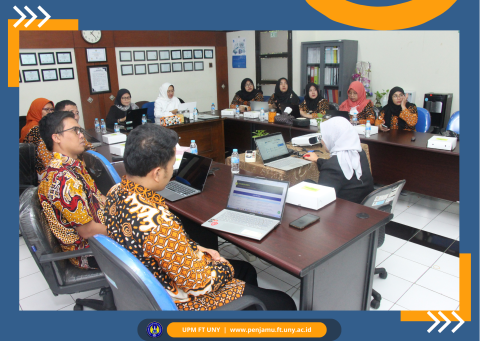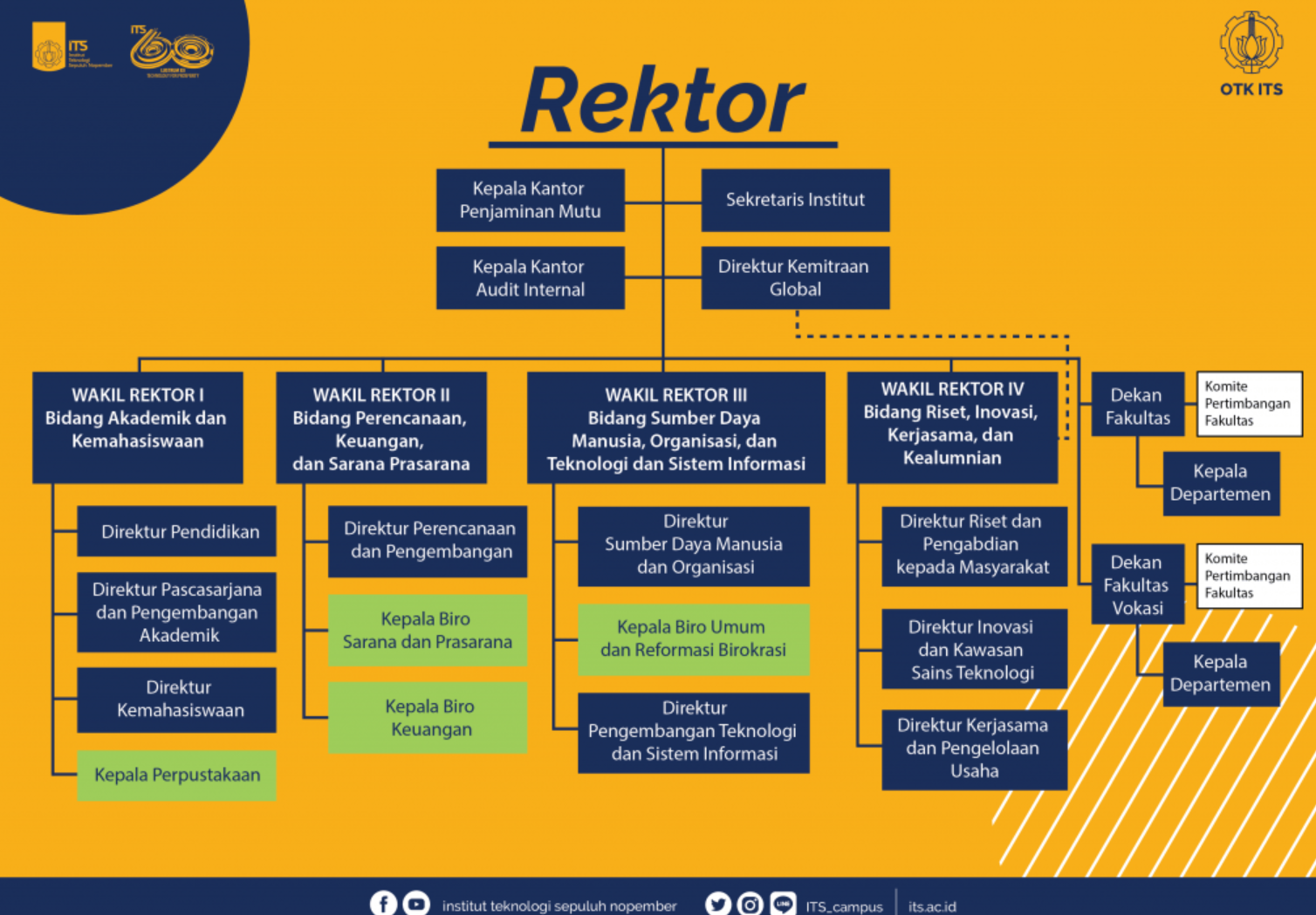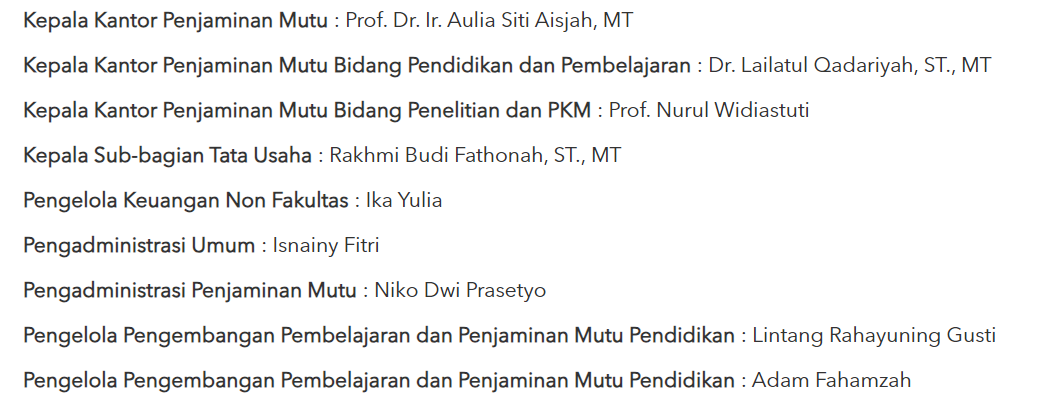FT UNY Comparative Study Visit with ITS Surabaya

Penjamu FT UNY - The Faculty of Engineering of Yogyakarta State University (UNY) conducted a comparative study visit to the Sepuluh Nopember Institute of Technology (ITS) Surabaya on July 20, 2023. This activity took place in the ITS Postgraduate Building Quality Assurance Office Room from 13.00 WIB to 15.00 WIB. The visit aimed to understand the best practices in quality assurance management at ITS Surabaya.
During the meeting, the quality assurance team of the Faculty of Engineering UNY led by Dr. Umi Rochayati, M.Pd., Dr. Ir. Darmono, and Ir. Yosep Efendi, M.Pd. met with members of the ITS quality assurance team, namely Prof. Dr. Ir. Aulia Siti Aisjah, MT, Dr. Lailatul Qadariyah, ST., MT, and Prof. Nurul Widiastuti. The discussion was very informative and revealed various aspects of quality assurance management at both institutions.
Some important points revealed in this meeting include:
Organizational Structure of the ITS Quality Assurance Office: The ITS Quality Assurance Office is directly under the Rector. The organizational structure of the ITS Quality Assurance Office consists of several areas, such as the Education and Learning Division, the Research and PKM Division, and Administration.
Organizational Structure of the Quality Assurance Office of the Faculty of Engineering UNY: The team from the Faculty of Engineering UNY was interested to know whether the organizational structure of the Quality Assurance Office of the Faculty of Engineering UNY is similar to that of ITS. Dr. Umi Rochayati explained that the UPM of the Faculty of Engineering UNY also has an organizational structure consisting of various divisions, such as the Quality Development Division, Audit and Monitoring Division, and other Divisions.
Quality Assurance System at ITS: Almost all study programs at ITS have achieved accreditation from both national and international institutions. The SPMI (Internal Quality Assurance System) at ITS has been integrated with the university portal, which allows access to various applications and services, including financial and HR management. ITS has 24 standards in SPMI that are used for monitoring and assessment. Study programs that do not meet SPMI targets may not get remuneration.
Use of Information Systems: ITS Surabaya has a comprehensive information system that includes various services such as myITS academics, myITS attendance, Achievement, PDDIKTI check, myITS Thesis, and others. This system also covers aspects of human resource management (HRM).
SPMI (Internal Quality Assurance System): ITS Surabaya runs SPMI twice per semester and per year. There are 24 standards that must be met, and if SPMI targets are not met, then remuneration is not disbursed.
Study Program Accreditation: ITS Surabaya is committed to having 80% of study programs accredited A or Superior. Every year ITS plans which study programs will participate in BAN (National Accreditation Agency) accreditation and international accreditation.
Integration of Learning Development and Quality Assurance: SLOs (Graduate Learning Outcomes) are integrated with the ITS portal, allowing lecturers to view SLO results online. In addition, there is a system for correcting grades and sending practicum grades. From the third week, the implementation of Outcome-Based Education (OBE) was fully implemented.
Practicum Grade Filling Process: The process of filling in practicum grades is still done manually by filling in data through excel worksheets before being entered into the system provided.
Student Activities (Internships, KKN, etc.): Student activities such as internships and Community Service (KKN) are recognized at the study program level after going through an approval process. Each study program has guidelines that regulate these student activities.
Student Attendance: ITS Surabaya emphasizes the importance of student attendance with 80% and 90% attendance targets.
KPM's Role in Curriculum Meetings: The Quality Assurance Unit at ITS is involved in curriculum meetings to ensure alignment between curriculum and quality assurance.
Stakeholder Participation: Stakeholders such as alumni, research partners, study programs, and departments are involved in various activities that support quality assurance.
Role of Alumni and Industry Partners: ITS has an alumni forum and departmental discussion groups (WhatsApp) that involve alumni. Cooperation with industry partners covers various aspects, such as research, field practice activities, and the involvement of practitioner lecturers.
This comparative study visit is a valuable platform for the exchange of knowledge and experience between two higher education institutions committed to improving the quality of education. By sharing best practices, it is hoped that both universities can continue to improve the effectiveness of their quality assurance systems. This comparative study visit provided valuable insights for both institutions in their efforts to continuously improve the quality of education and quality assurance. By sharing experiences and best practices, it is hoped that both universities can continue to develop their quality assurance systems to support better education in the future.


Editor: RAA
